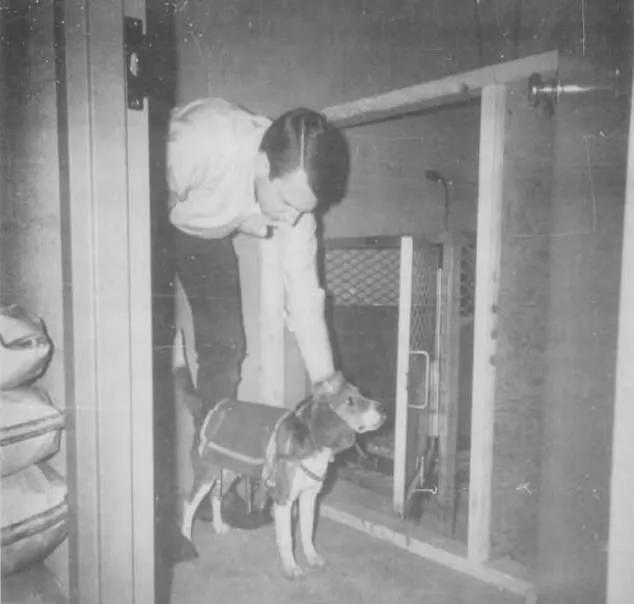Why do children become depressed?
Probably many people have heard of psychologist Seligman's electric shock dog experiment.
Seligman locked a dog in an electrified cage, hit the dog with a strong electric current, and no matter how hard the dog tried, it could not escape.

After some time, he withdrew the electricity again, and the cage was opened, and then he found that the dog was no longer struggling, and then he groaned in pain and waited for the electricity.
Through this experiment, Seligman discovered that pain and helplessness were learned.
When a child feels that he is not satisfied with what his parents do, no matter how hard he tries, he will not meet his parents' expectations, slowly he will suppress himself, become unhappy, and eventually be surrounded by loss, pain and helplessness, forming a learned helplessness model.
Psychologist Seligman later discovered that learned helplessness is a pattern of depression.
In the 1970s, Seligman tested the learned patterns of helplessness in depression and found that pessimistic people were more likely to succumb to helplessness and that they were at higher risk of depression.
so
How can children get out of the learned helplessness pattern?
Psychologist Seligman proposed psychological immunity, which he later conducted an experiment.
Teach puppies to conquer electric shocks
The experimenter will teach the puppy to control the shock, and let the puppy take the initiative to press the control switch of the shock.
For dogs that were already depressed, the experimenters would take them out of their cages and take them to press the control switch.
So many times back and forth, whether it is a dog that is trapped in helplessness or a dog that is already depressed, they no longer succumb to helplessness, but actively avoid electric shocks.
The results of this experiment show that after the puppies have learned the experience of conquering electric shocks, these immune experiences can help them no longer be shocked, but can make them active again.
This gave Seligman a new discovery, and it turns out that happiness can also be learned.
When a person falls into depression, we should not blindly reason with him, pour chicken soup, let him cheer up quickly, on the contrary, what he needs is exactly our tolerance, patience, understanding and support for him.
▲ Change the interpretation style
The style of interpretation is a person's habit of evaluating oneself and external things. For example, if a child encounters setbacks, his first reaction is to withdraw and deny himself, which is actually his explanatory style, and his explanatory style is biased towards negativity.
Changing your child's style of explanation is to let your child see more possibilities in everything, rather than just seeing the bad side.
▲ Teach children to be optimistic
Optimism is not innate, it can be learned.
In Seligman's book, Teaching optimistic children, he gave a method called the ABC Rule of Optimistic Parenting.
The ABC law derives from psychologist Albert Ellis's cognitive therapy of rational emotions.
A stands for bad things, C stands for consequences, and B represents views and explanations of bad events.
Albert Ellis believes that it is precisely the perception and interpretation of unfortunate events that lead to certain special consequences.
In other words, whether something happens is good or bad, the key is not in the thing itself, but in how we perceive it.
For example, if the exam is not good, some children will think that it is their own fault, it is not good, and some children will feel that they have not taken the exam well, which does not mean anything, check for omissions and fill in the gaps, continue to work hard, and strive for a good exam next time.
These two completely different perceptions show that even if something happens the same, the results can be completely different for different people.
Here I will give you the form in your book
The specific approach is to objectively describe the cause, process and result of the matter in the "Bad Things" column.
Write down your thoughts on bad things in the "Ideas" section, using 1-100 to evaluate the ideas for a score.
In the Consequences column, write down how you feel and react to things and rate yourself based on the intensity of the feelings.
Finally, determine whether your feelings and behaviors are related to your thoughts.
The advantage of this is that you can make yourself aware of what caused the reaction, the first step in changing the reaction, and an important step in the conversation with yourself.
Let's take the example of my child!
Because I used to nag and accuse my children, for a long time, my children said that they would not do anything when they encountered things, often denying themselves, thinking that they were stupid, and the whole person became very unconfident.
Later, I realized the seriousness of the problem, began to read and learn, practiced in life, and did many times of psychological construction with the child, and slowly changed the way the child's thinking.
Once, the child wrote an essay about the fact that he was dismissed by the teacher as a big group leader because he did not meet the test standards. In the composition, he details his feelings after being removed.
From the initial low mood, feeling faceless, to rekindling the fighting spirit and wanting to regain the position of the big group leader again, the child no longer said that he could not do it as before, but firmly believed that he could do it.
As I often say to my children, "See opportunities in crises, dig for treasures in mistakes".
The child has fully received it, and the child has gradually become more confident.
Optimism can indeed be learned.
epilogue:
As parents, when we can give our children enough love and tolerance, respect and support, children will not be negative and pessimistic.